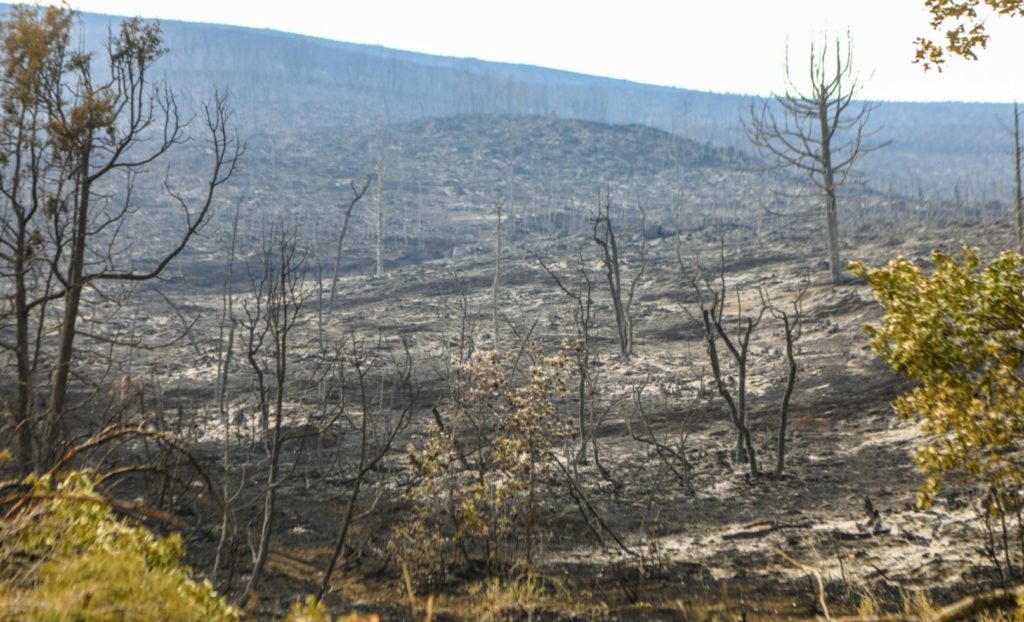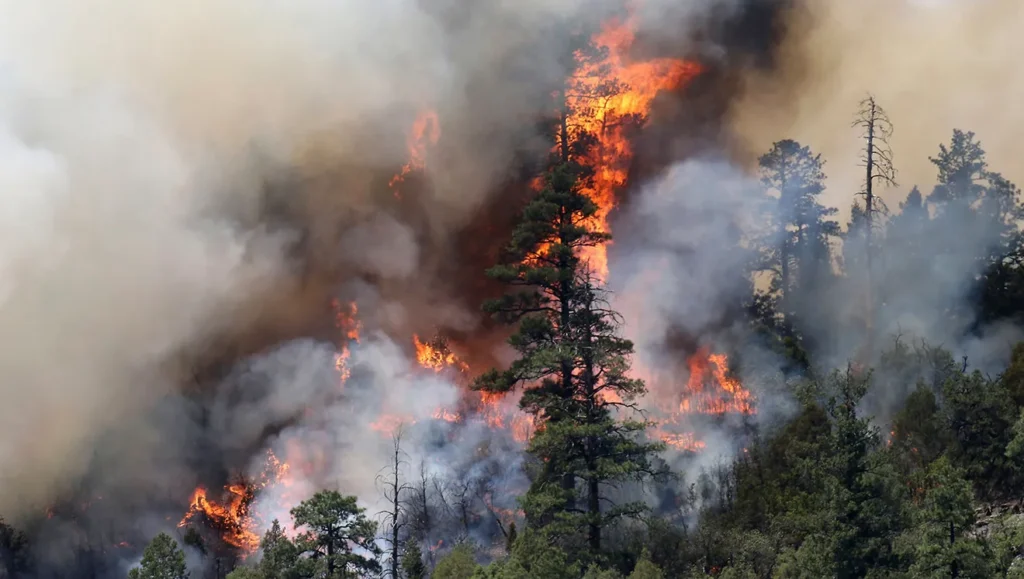Gasoline Has Nothing to Do with Fire
by RANGE contributor
A couple weeks ago a letter to the editor appeared in this paper and six others around the state, asserting that “Removing trees from Colorado forests will not prevent wildfires from burning.”
Really? As if removing all the wood from a campfire would not help put it out?
The letter was written by a guy identifying himself with the Eco-Integrity Alliance, a small new group that calls itself an “alternative to a mainstream environmental movement that has lost its way.” They have to say that, because even the “mainstream environmental movement,” which spent decades stopping professional forest management and killing the timber industry, now understands the dire need to return to active management in the wake of massive unnatural catastrophic forest fires. Even the most dedicated environmental industry leaders would not claim that removing gasoline from a fire would have no effect on it.
That’s why Colorado’s democratic Senators Bennet and Hickenlooper, and Boulder Congressman Joe Neguse, pushed to include $3.3 billion in last year’s Biden infrastructure bill for wildfire risk reduction – including significant funding for the Forest Service to clear overgrown forests. The letter writer made fun of the congressional delegation for that, saying such management would destroy “our carbon-storing forests, which are living climate buffers that also give us clean air and water, flood and erosion control, and fish and wildlife habitat.” That is all true, but only for healthy forests – not the dead and dying forests that span the Rockies from New Mexico to British Columbia. It is not true of three million acres of dead trees in Colorado, nor of the 100 million acres of national forests that have burned in the last 20 years. No, those disasters gave us polluted air and water, mass erosion and flooding, dead fish and wildlife.

The letter is also posted on the group’s website, where its author says, “We think the discussion needs to go from simply logging industry propaganda to these points that we’re making.” It is beyond ironic (perhaps disingenuous) to suggest our national forest health crisis and the nearly unanimous call for active management is “logging industry propaganda,” since there is almost no logging industry left. I used to attend conventions of the Colorado Timber Industry Association held in large hotel ballrooms. Today the few members left meet in one corner of a small restaurant. California, which has experienced the worst fires in western history, lost over 900 sawmills in a decade, and has almost no industry left with which the Forest Service and BLM can partner to restore healthy public lands.
Rather than return the forests to a more natural density and age structure, and clear the unnatural overgrowth in the understory, which leaders on both sides of the political aisle now advocate, the writer suggests two “simple actions.” First, make homes “Firewise, tending an area up to 100 feet around a structure, installing metal roofs, etc.” Homeowners should protect their property, yes, but that has nothing to do with protecting the forest. The discussion is off track whenever it veers onto the health of the logging industry, jobs in rural communities, or the safety of homes, all of which are related important topics. But scientific forest management should be about the health of the forest and what that requires. Second, he writes that we must “preserve our carbon-storing forests,” which is hard to do when they are dying, falling down, rotting, and burning.
Reasonable people can disagree about the cause of the problem, as some blame the lack of management while others blame climate change. Frankly, there is truth on both sides of that argument, but the question ought to be, what should we do about it now? This letter writer advocated greater use of prescribed fire as an alternative to logging, though he pointed out at least two massive fires that were started by prescribed fires that burned out of control. That wouldn’t happen if massive fuel loads were not there to burn. More to the point, wood stores carbon long-term, whether it is standing in trees or as studs in your house. When wood burns it releases that carbon into the atmosphere, so fire is not the best management choice for mitigating climate change.
If you think reducing fuel in the forests would not help prevent fires, you might also think picking up a banana peel would not prevent slipping, running out of gas would not make us late to the party, and removing food from our plates would not help our waistlines.
See more from Greg Walcher by clicking here
Subscribe to RANGE magazine
Call 1-800-RANGE-4-U
You may also like
-
Advertising in Australia is used to push green propaganda
-
Fed plan would kill 500,000 barred owls to “recover” spotted owls
-
Ecologist goes undercover to expose eagle deaths cause by wind turbines
-
Foot deformities in Texas foals caused by effects of nearby wind turbines
-
Groups sue Biden Administration to protect Right Whales from offshore wind project



Low level winter burning, grazing and logging make for a real young healthy forest.
The white govt may eventually figure it out.
Then again they may not 2. They’re pretty slow.